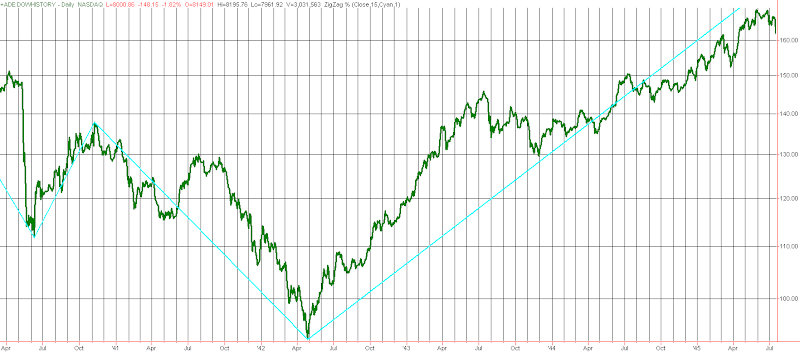I don’t normally reprint large sections of the Subscriber Letter on the blog but I’ve received several inquiries about the longer-term and I figured, “What the heck.” Below is from this week’s intermediate-term outlook:
The question that I keep hearing over and over is “Is this rally for real?” What needs to be considered when formulating an answer is what constitutes a “real” bull move. It is my contention that the current environment most resembles that of the 30’s from a trading standpoint. Certainly the kind of damage that has been done to the market has not occurred since at least that time period. Additionally, volatility levels reached during the course of this bear have reached levels not seen since at least the 30’s in some cases.
I’m of the belief that the market is likely to trade in a very wide range over the next few years. It is unlikely to begin a new secular bull market during this time. Rather I believe we are likely to see both bull and bear runs occur. Some of these, such as the October and November rallies, may be too quick for most traders to capture significant portions of. Others may last several months before reversing course in a convincing manner. Below I’ve again pulled up some charts from the 30’s. In this case I’ve overlayed the zig-zag indicator in light blue.
What the zig-zag does is identify all moves of at least 15% either up or down from close to close. You’ll notice there were a substantial number of these moves during that time:
Late 1929 – late 1934. (created with Tradestation)
Lots of sharp sizable moves can be seen during the period. The 1932 low seen here is “the” low.

Several bull and bear markets could also be identified here.

So is it for real? Well, I’m not at all convinced that we’re looking at a 1942 bottom at this point. My contention is we are likely years away from that. The moves seen between 1929 and 1941 offered plenty of opportunity, though. I expect the next several years of this market will as well. Traders need not worry whether we are in a bull or bear market. Leave that to the media and instead just focus on the likely direction based on the evidence for the next few days, weeks or perhaps months. Remain nimble in your assessment as conditions may change rapidly. Whether the “ultimate” bottom gets hit is irrelevant. The ultimate bottom in the charts above was made in 1932. Close to 10 years passed before the next great bull market emerged. Picking that 1932 ultimate bottom and riding the wave higher was not the key to big profits. Much more important than picking the bottom would have been to stay nimble and take advantage of some of the vast directional opportunities over the next 10 years – prior to the “real” bull emerging.
